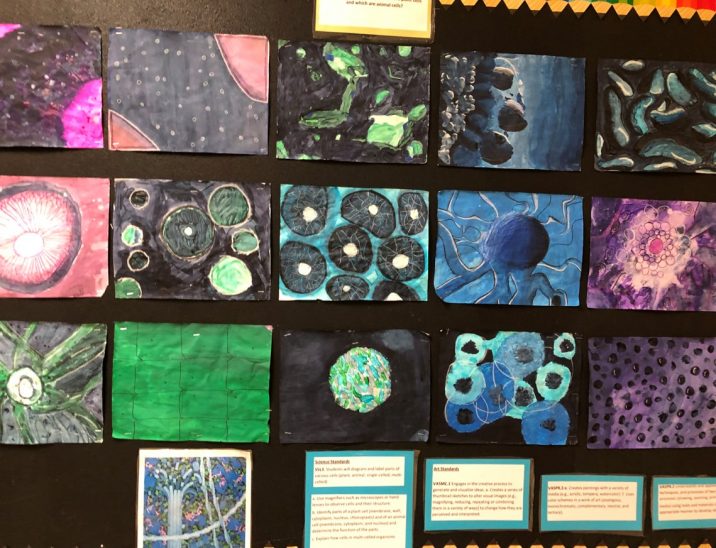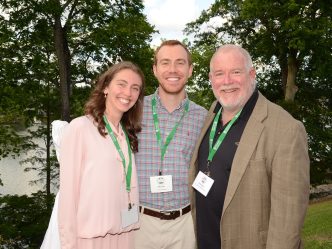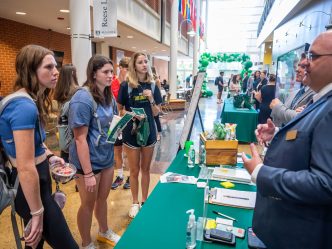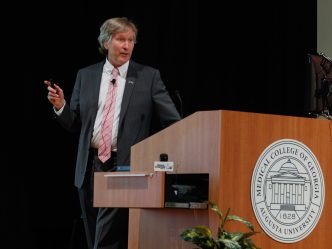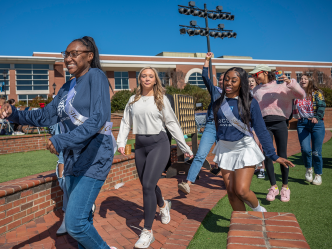It’s not just patient care that drives the doctors, nurses and various support staff at the Georgia Cancer Center. This same team has a passion for educating those who want to learn the best ways to care for the generations of cancer patients to come.
“We want to train our future health care workers,” said Argenail Darrington, project coordinator for the Georgia Cancer Center. “We are working on partnerships with a number of school districts in our catchment area to expose them to all of the career opportunities available at the Georgia Cancer Center.”
One of those schools is Richmond County’s Goshen Elementary School, where leaders are working with the Georgia Department of Education for Science, Technology, Engineering, Arts, Math (STEAM) certification. According to the Department of Education’s website, Georgia was the first state to offer school-level STEAM Certification, believing that adding arts to the existing STEM education program is important in teaching students how to solve problems in creative ways while building empathy for their classmates and community.
“I visited the school in the spring of 2019 during their career day,” Darrington said. “I talked about various careers at the Georgia Cancer Center, and out of that discussion, the students wanted to know more about cancer. They had a lot of questions about cancer treatment options and cancer prevention.”
As part of the certification process, Darrington presented leadership at Goshen Elementary with a multi-pronged series called “Good Cells Gone Bad,” which covered all five STEAM areas.
The first session, which covered science and technology, involved a visit from Dr. Roni Bollag, the director of the Georgia Cancer Center’s Biorepository, which serves as the storage facility for tumor tissue samples from cancer patients across Georgia.
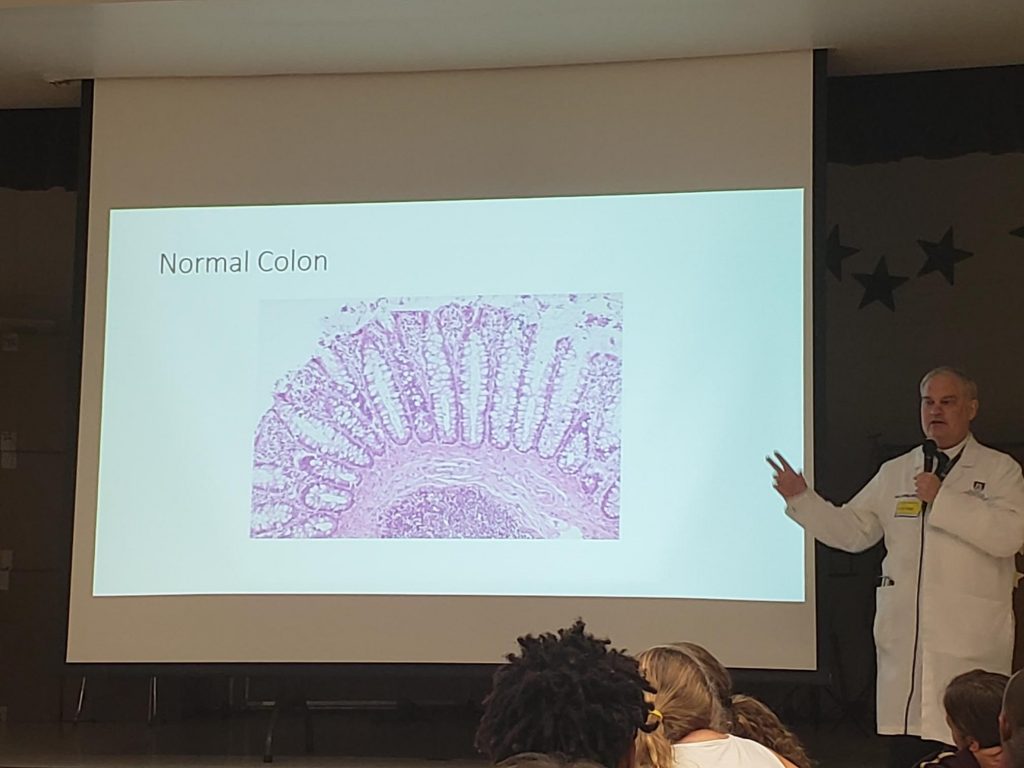

“It made me feel wonderful to see the students engage with the information I presented,” Bollag said. “There is a need for the next generation of scientists. Building the presentation was about planting a seed in the minds of these fifth graders so they would know what areas they would need to focus on if they were interested in a career in cancer research later in life.”
For the second session, Darrington asked the Georgia Cancer Center’s dietitian support team of Sarah Deen and Rachel Johanek to talk with the students about a healthy diet and how cancer treatment can affect a patient’s diet.
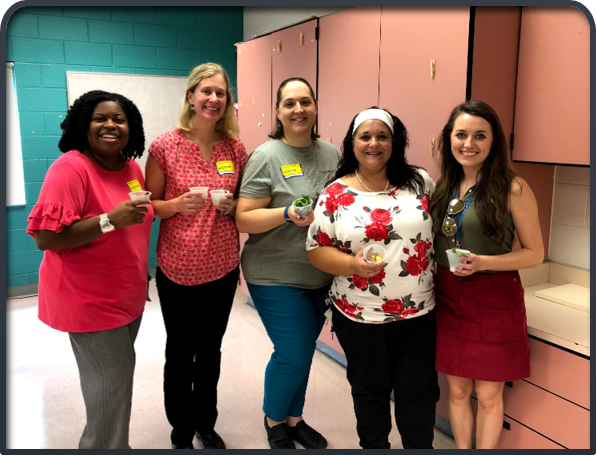

“When approached to be involved in the ‘Good Cells Gone Bad’ series, we saw an excellent opportunity to promote and educate our future generation on cancer prevention risk factors,” Deen said. “Any impact, either great or small, in preventing this terrible disease is a step in the right direction.”
The day’s events were divided among three sessions. First, students were asked to identify a variety of fruits and vegetables and their colors. Then, the dietitian team gave the students an assortment of herbs and spices for them to describe based on the senses of smell and touch. The final activity was a prize-filled game of fruit and vegetable bingo, followed by a trip to the school’s own garden, where students were able to see and touch pre-harvested versions of some of the very items they had learned about earlier.
For the art portion of the STEAM certification, the students were able to draw and paint normal cells and cancer cells. They also kept a creative writing journal to log their thoughts about cancer, how cancer affects diet, and any other reflections they had about all they had learned.
It was not just the students who benefited from “Good Cells Gone Bad” — the series also gave the teachers and staff who had gone through their own cancer journeys an outlet to share their stories.
“As we went through the planning process for each session, the school’s cancer survivors would thank me and the Georgia Cancer Center for our efforts,” Darrington said. “Some survivors mentioned they did not know the best way to talk to their students about cancer until ‘Good Cells Gone Bad’ opened the door.”
The final session for the fall semester gave students the opportunity to extract DNA from strawberries. Currently, Darrington and the team are building the sessions for the spring semester of “Good Cells Gone Bad.” Part of the educational program will include learning about how important community philanthropy is to funding the research and patient care needs of the Georgia Cancer Center. There are also plans to engage the students’ parents during a family night focused on the importance of STEAM certification and its impact on education.
Along with elementary school students, the Georgia Cancer Center has hosted students and teachers from a number of different area high schools. Darrington said the team is hoping to use the sessions at Goshen Elementary as a template to build partnerships with other schools in the future.
“Every person’s experience with cancer is different, but maybe we made an impact on the students’ experience,” Bollag said. “I think the way Argenail and the team designed the educational sessions was wonderful because it was interactive and allowed the students to find different ways to be engaged with the learning.”
 Augusta University
Augusta University
